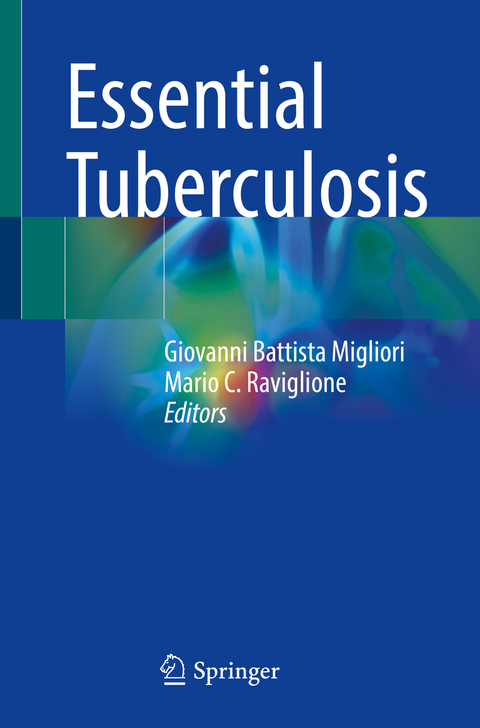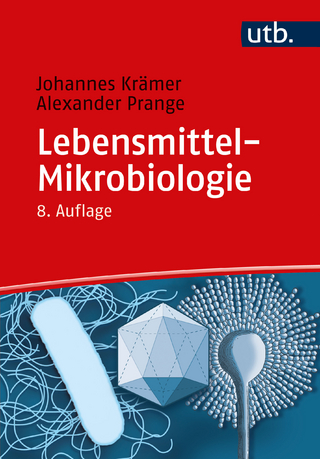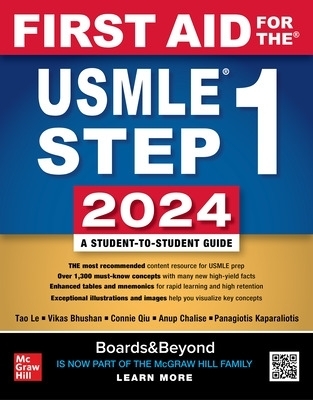
Essential Tuberculosis
Springer International Publishing (Verlag)
978-3-030-66705-4 (ISBN)
This textbook covers the full spectrum of tuberculosis-related topics in a comprehensive yet easy-to-follow, readily accessible format. Filling a significant gap in tuberculosis literature, it addresses tuberculosis sensu latu, mirroring the content of the London Queen Mary University tuberculosis Diploma.
Covering all aspects related to this condition, from prevention, diagnosis and treatment to public and global health, the book provides a broad overview of tuberculosis management. Further, it includes a wealth of case studies and exercises, making it an essential guide for all staff involved in tuberculosis management.
Written by an international and interdisciplinary panel of experts, the book appeals to a broad readership including students, postdoctoral fellows, clinicians, researchers, and nurses, as well as public health officers working in tuberculosis control programs.
lt;p>
Giovanni Battista Migliori is specialist in Respiratory Medicine and Medical Statistics, and Auditor of Quality Systems. With >30 years of global experience in designing, implementing and evaluating tuberculosis (TB) & TB/HIV control programmes globally, he is Head of Clinical Epidemiology of Respiratory Diseases Service and Director of the World Health Organization (WHO) Collaborating Centre for TB and Lung Diseases at Maugeri Research Institute, Tradate, Italy, active in TB control, training and research activities. He was nominated Fellow of the Royal College of Physicians (FRCP), London (honorary nomination, 2012), Foundation Fellow of the European Respiratory Society (FERS, 2014) and Fellow of the Asian Pacific Society of Respirology (FAPSR 2015). He is Honorary Professor at the Queen Mary University (London) and Visiting Professor at the University of Monterrey (Mexico) and Insubria (Italy). He has published >500 peer-rev^20,000 citations) in different languages with the top number of publications on MDR/XDR-TB globally. He is author of the latest TB guidelines of WHO, ECDC and ATS/IDSA/ERS/CDC. He has created and directed over 100 WHO Training Courses for TB &TB/HIV consultants and managers belonging to the 'Sondalo initiative' (which trained about 50% of the global human workforces active in TB control). He is currently Chief Editor of the International Journal of Tuberculosis and Lung Disease, Section Editor for TB of the European Respiratory Journal and Associate Editor of Pulmonology and of the Jornal Brasileiro de Pneumologia. Former Secretary General of the ERS, President of the UNION (European Region) and member of WHO STAG (the WHO technical advisory group), he is chair of the GTN (Global Tuberculosis Network) and of the European Research Initiative (ERI) of WHO EURO. He received the Rotary Career Prize (2009), the lifetime award by Diligentia (The Netherlands ancient scientific society; 2015) and the Moscow Society of Phtisiology (2018), the Honorary invitation to the 'highly cited Italian scientists' on Web of Science ('Gruppo 2003 per la ricerca scientifica', 2018) and the Expertscape World Extpert badge (2020) for his contribution on the fight against tuberculosis.
Mario C. Raviglione is Full Professor of Global Health at the Centre for Multidisciplinary Research in Health Sciences (MACH) of the University of Milan, Italy. He is also Honorary Professor at the Queen Mary University of London, UK. Previously, he worked at WHO where he directed the Global Tuberculosis Programme (2003-2017). A graduate from Turin University, Italy, he trained in internal medicine, infectious diseases, and AIDS at Cabrini Medical Centre, New York, and Beth Israel Hospital, Harvard Medical School, Boston. He is one of the most cited authors worldwide in the TB field. His work consists of more than 400 publications on TB, AIDS, infectious diseases and global health in journals and chapters in public health books, including the past 8 editions of the Harrison's Principles of Internal Medicine. His h-index is 108 and his citations over 55,000. Prof. Raviglione has worked with over 50 countries world-wide and has been visiting professor or lectures in major universities including Johns Hopkins, Harvard, Mc Gill, Sydney, Geneva, Liverpool, Pavia, Modena & Reggio Emilia, and Brescia. In 2005 he received the Princess Chichibu TB Global Award. In 2009 he was nominated Fellow of the Royal College of Physicians (F.R.C.P., London, UK). In 2010 he received the Wolfheze 20-Year Jubilee Award (The Netherlands). In 2014 he was appointed a Foundation Fellow of the European Respiratory Society (F.E.R.S.). In 2014 he received the Lifetime Achievement Award by the India International Public Health Conference of the Indian Medical Association. In 2016 he was made Honorary Member of the Russian Society of Phtisiatry. In 201
Part 1. Introduction.- Chapter 1. History of Tuberculosis.- Chapter 2. Mycobacterium tuberculosis: the organism, genomics and evolution.- Chapter 3. Pathogenesis and immunology of TB.- Chapter 4. Basic and descriptive epidemiology of TB.- Chapter 5. TB WHO recommended strategies and Global Health perspectives (and exercise/country examples).- Part 2. Prevention.- Chapter 6. Vaccines.- Chapter 7. Latent TB infection diagnosis and treatment.- Chapter 8. Infection Control (and exercise). Part 3. Diagnosis.- Chapter 9. TB Clinical presentation and differential diagnosis.- Chapter 10. Laboratory diagnosis of TB (including MDR).- Chapter 11. Radiology in the diagnosis of TB - How to read a chest x-ray.- IV. Treatment.- Chapter 12. Rationale for chemotherapy (and exercise).- Chapter 13. Anti-TB drugs and adverse events.- Chapter 14. Treatment of drug-susceptible TB.- Chapter 15. Surgery and TB.- Chapter 16. How to design the regimen for drug-resistant TB (and clinicalcases).- Chapter 17. The shorter regimen for MDR-TB.- Chapter 18. Monitoring treatment: clinical and programmatic approach for TB and DR-TB.- Chapter 19. Adherence.- Chapter 20. TB Patient-centred care.- Part 5. Risk factors, risk groups, challenges.- Chapter 21. TB, alcohol, smoking and diabetes. Chapter 22. TB and prisons.- Chapter 23. TB and migration.- Chapter 24. The TB/HIV association.- Chapter 25. Childhood TB.- Chapter 26. Tuberculosis and women (risk factors, pregnancy, access to services and gender issues).- Chapter 27. TB in the elderly.- Chapter 28. Extra-pulmonary TB.- Chapter 29. Renal and hepatic failure and tuberculosis.- Chapter 30. TB Rehabilitation and palliative care.- Chapter 31. Post TB infections.- Part 6. Public Health.- Chapter 32. The national TB programme: role and functions (and exercise).- Chapter 33. National TB Strategic Planning (and exercise).- Chapter 34. Active case finding and hard-to-reach TB groups.- Chapter 35. Managing TB outbreaks in low-incidence settings (and exercise).- Part 7. Global Health.- Chapter 36. The global TB burden.- Chapter 37. A multi-sectorial approach to tuberculosis control and elimination in the era of the UN Sustainable Development Goals.- Chapter 38. "One Health" approach to zoonotic tuberculosis. The burden of zoonotic tuberculosis in the world.- Chapter 39. Health systems and TB control.- Chapter 40. The global and individual economics of TB.- Part 8. Research.- Chapter 41. An overview of research priorities in TB.- Chapter 42. Priority areas for TB vaccines.- Chapter 43. Priority areas for TB diagnosis.- Chapter 44. Priority areas for latent infection.- Chapter 45. Priority areas for TB treatment.- Chapter 46. Operational Research.
"The book is well produced and provides a comprehensive guide to the subject, covering both the clinical and scientific aspects of this important infectious disease. It will be profitably thumbed by all who come across patients with the disease in their line of work and by others who have an interest in this important infection, which shows no sign of diminishing even in the 21st century." (Arpan K Banerjee, RAD Magazine, December, 2021)
“The book is well produced and provides a comprehensive guide to the subject, covering both the clinical and scientific aspects of this important infectious disease. It will be profitably thumbed by all who come across patients with the disease in their line of work and by others who have an interest in this important infection, which shows no sign of diminishing even in the 21st century.” (Arpan K Banerjee, RAD Magazine, December, 2021)
| Erscheinungsdatum | 13.08.2021 |
|---|---|
| Zusatzinfo | X, 436 p. 44 illus., 27 illus. in color. |
| Verlagsort | Cham |
| Sprache | englisch |
| Maße | 155 x 235 mm |
| Gewicht | 836 g |
| Themenwelt | Medizin / Pharmazie ► Medizinische Fachgebiete |
| Schlagworte | Global Health • Health inequalities • Infectious Diseases • MDR-TB and drug resistance • SDG 3 • SDG3 • SDGs • Sustainable Development Goals • TB control • TB elimination • TB Infection control • Tuberculosis Epidemiology • XDR-TB |
| ISBN-10 | 3-030-66705-7 / 3030667057 |
| ISBN-13 | 978-3-030-66705-4 / 9783030667054 |
| Zustand | Neuware |
| Haben Sie eine Frage zum Produkt? |
aus dem Bereich


